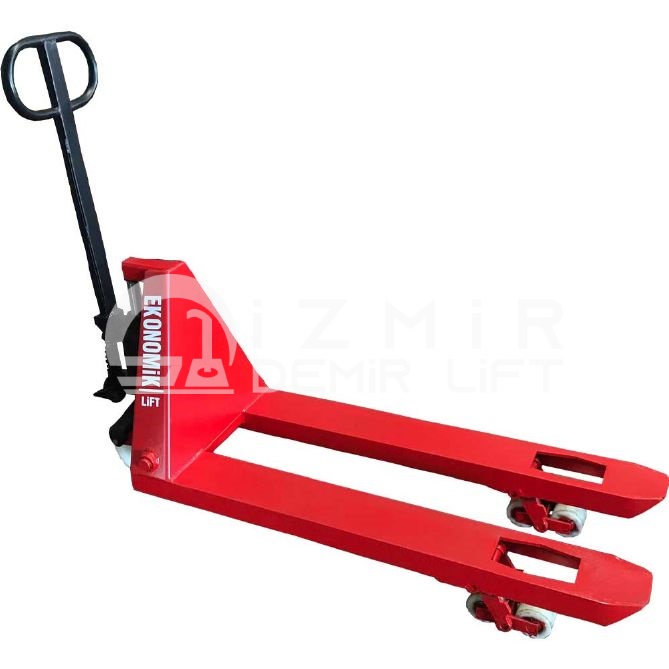
A warehouse is the heart of a business. How efficiently this heart beats determines the health of the entire operation. A slow, disorganized, and inefficient warehouse increases costs, reduces customer satisfaction, and hinders growth. Within this complex system, there's a modest but vital piece of equipment that works like the capillaries that keep the blood flowing: a pallet truck. While often viewed as a simple moving tool, the correct and strategic use of pallet trucks can make a surprisingly significant difference in warehouse efficiency. Here are 7 practical ways to maximize your warehouse's potential by transforming pallet trucks into productivity tools.
1. Choose the Right Pallet Truck for the Task
You don't use the same tool for every job. This applies to warehouse operations as well. While a battery-powered pallet truck may be an unnecessary expense for an operation where only light loads are moved short distances, insisting on using a manual pallet truck in a busy, heavy-load environment undermines productivity. Analyze your needs: Battery-powered or manual? If you need to weigh loads simultaneously, do you need a model with an electronic scale? Or do you need a workbench? So, should you consider a scissor lift pallet truck? Choosing the right equipment is the first step towards efficiency.
2. Review Your Warehouse Layout
Even the best pallet truck can't work magic in a messy and disorganized warehouse. Aisles should be wide, clean, and clear of obstacles. Creating one-way traffic flows prevents congestion and accidents.
3. Embrace the "Golden Zone" Principle
Not all products in your warehouse move equally frequently. Place the best-selling, fastest-moving products (Group A products) in the "golden zone" (shelves between waist and shoulder height) closest to the shipping area and most ergonomically accessible. This significantly reduces the distance pallet trucks must travel and the time and effort spent by operators.
4. Never Neglect Periodic Maintenance
A broken pallet truck isn't just a pile of metal; it's also a bottleneck. An unexpected malfunction can disrupt the entire shipping plan. Prevent small problems from turning into major and expensive breakdowns by regularly checking your pallet trucks daily, cleaning and lubricating them weekly, and performing regular professional maintenance.
5. Train Your Operators Thoroughly
Operating a pallet truck may seem simple, but using it efficiently and safely requires training. Teach your operators not only safety rules but also efficiency-focused techniques such as planning the shortest routes, balancing loads correctly, and saving energy (and effort) by avoiding sharp turns. A trained operator is both safer and faster.
6. Combine Loads and Routes
Whenever possible, avoid traveling long distances to move a single pallet. Utilize your warehouse management system or order lists to combine multiple orders destined for or picked up from nearby locations into a single run. This "task blending" technique reduces idle time and overall distance traveled.
7. Use Technology for Efficiency
A pallet truck with an electronic scale combines weighing with transportation, eliminating the steps of picking up a pallet, transporting it to the scale, and returning it. This means performing two tasks simultaneously with a single piece of equipment, resulting in tremendous time savings, particularly in the receiving and shipping processes.
Small Changes, Big Results
Warehouse efficiency is often associated with large and expensive automation systems. However, strategic changes to how you use your pallet truck, your most basic piece of equipment, can be surprisingly effective in reducing costs and increasing productivity.
At Izmir Demir Lift, we offer you not just a product, but a complete solution that will maximize your operational efficiency. This solution combines the pallet truck best suited to your needs with our expert support to ensure you get the most out of this equipment.